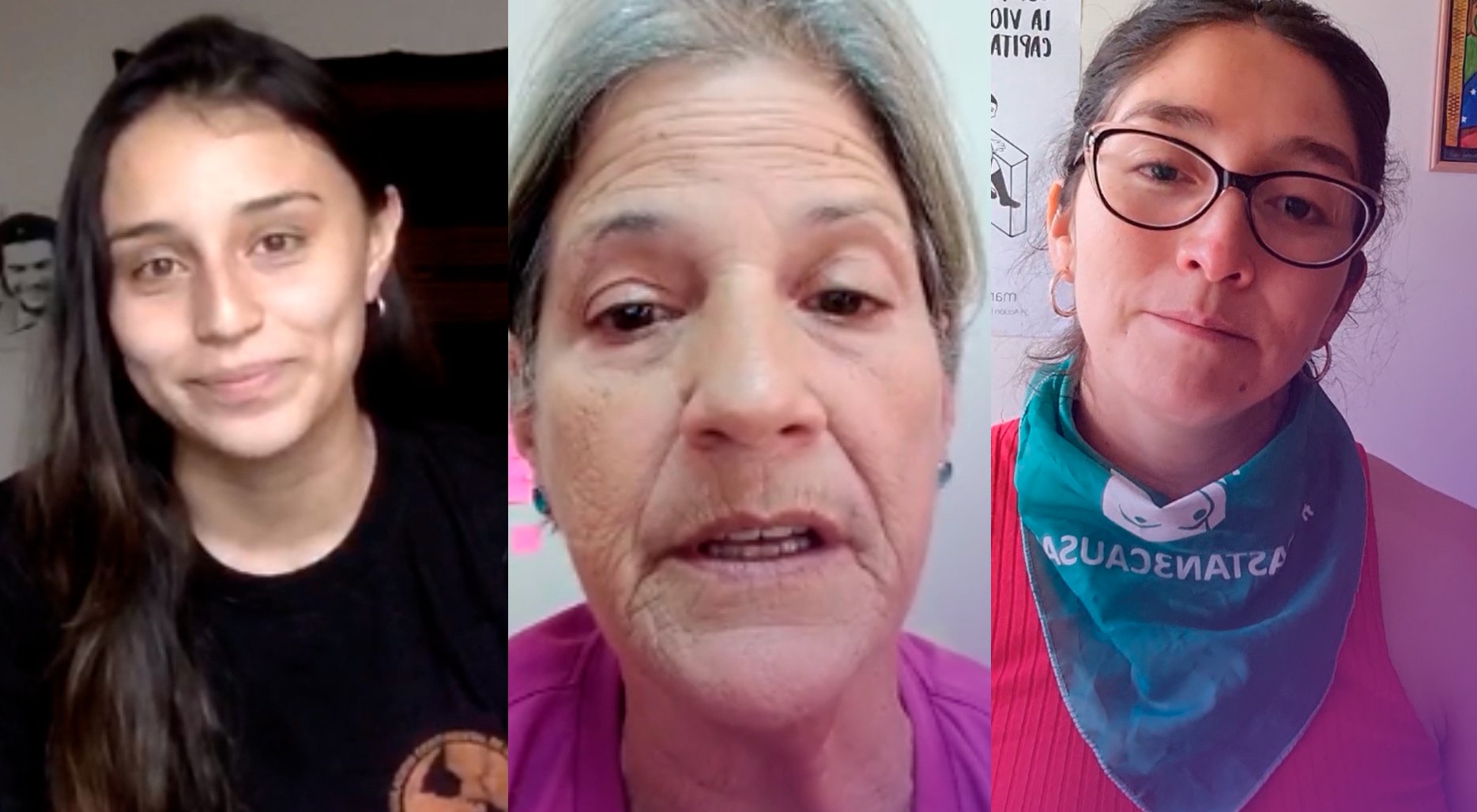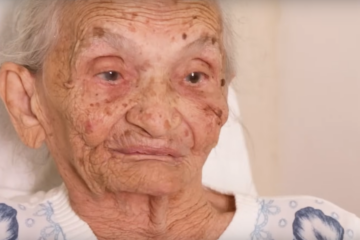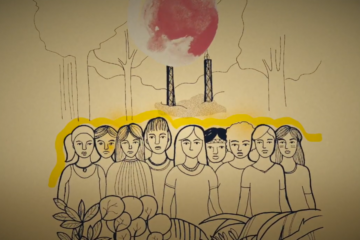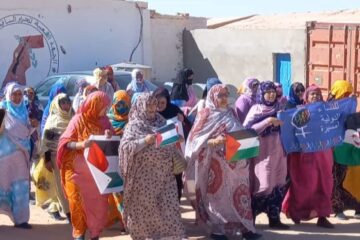We spoke with Danixa Navarro, of the World March of Women Chile, Lupe Perez, of WMW Bolivia, and Laura Capote, of the Political Education Office of ALBA Movements, about grassroots organizing experiences that have led to uprisings in Latin America and the Caribbean. We asked them how they see women’s role in the struggles for democracy and grassroots power, and about the challenges for the future so that these processes of radical change can move forward. Watch their answers on the video below. Click the CC icon at the bottom of the YouTube video and tap the Settings button to turn on and manage subtitles.
“We believe we are experiencing an important process of social struggle that will not end with the new Constitution. This is why we believe that women’s role right now is to keep promoting grassroots organization in different territories, in rural areas and low-income urban areas alike.” Danixa Navarro
“Women’s participation in establishing democracy is a topic that draws all of us. We, women, are an integral part of that. Moreover, we have very high expectations that this democracy will become a way of living and taking action in which spaces do not give priority to historical privileges of power groups, patriarchy, capitalism, and all forms of colonial and racial forms of oppression.” Lupe Perez
“Chile and Bolivia are two examples, two beacons, but there is an entire continent for us to win and move forward. We have seen major demonstrations in the last few months of 2020, also in Peru, Guatemala, and Colombia. We’ve had elections in Venezuela. That is, there is a series of events, of stages of struggle in the region.” Laura Capote




